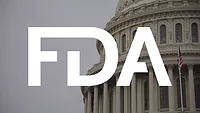FDA Announces NASEM Study of U.S. Infant Formula Supply, Regulation, Market

Credit: lucasgeorgewendt via Pixabay, MART PRODUCTION via Pexels
The U.S. Food and Drug Administration (FDA) has announced that the National Academies of Sciences, Engineering, and Medicine (NASEM) will conduct an independent study on challenges in the U.S. infant formula supply, market competition, and regulation.
The study will explore the current state of the U.S. infant formula market, including the diversity of manufacturers; the types of formulas produced (e.g., non-specialty or specialty, powdered or liquid); manufacturing facilities and their production and production capacities; the amounts of infant formula produced domestically versus the amounts imported; and other factors. The study will also examine how these factors compare to those of the market prior to the COVID-19 pandemic, and just prior to the Abbott Nutrition recall that occurred in February 2022 and precipitated a months-long supply and safety crisis.
The study will consider a range of conditions and systems that may be influencing competition in the U.S. infant formula market. Additionally, the study will examine the differences in the nutritional content, labeling, and other regulatory requirements between infant formula sold in the U.S. and formula sold in foreign markets, such as in the EU. Upon completion of the study, NASEM will submit a report to both Congress and FDA.
As part of the Food and Drug Omnibus Reform Act of 2022, Congress directed FDA to develop an Immediate National Strategy to Increase the Resiliency of the U.S. Infant Formula Market, which was released in March 2023; to engage with NASEM on a deeper study of challenges in the U.S. supply, market competition, and regulation of infant formula; and for FDA to use the information gained through the NASEM study to develop a long-term national strategy.
Looking for quick answers on food safety topics?
Try Ask FSM, our new smart AI search tool.
Ask FSM →








